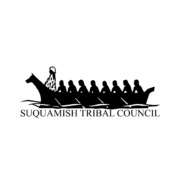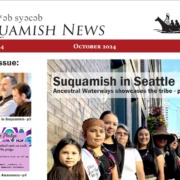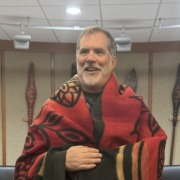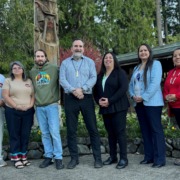Lake Leland Reservation Request Form
Suquamish tribal members may reserve the tribe’s Lake Leland Campground. Reservations include the use of the entire campground and are needed for any use.
Please understand, some dates may not be available. If a date is already taken, a staff member will call to discuss alternative dates.
Use of the campground is free, but a $100 refundable security deposit is required before any dates are reserved. Reservations are confirmed in the order that deposits are received.
The campground includes:
- 5 Cabins
- 3 RV pads
- 7 Tent sites
- 2 Covered Picnic Areas
- Bathroom facilities
CAMPGROUND RULES
- Be respectful of other campers, NO LOUD NOISES before 9:00 am or any time after 10:00 pm.
- This is a Drug-Free Zone.
- No Smoking in Cabins.
- There is NO LIFEGUARD on Duty.
- Children shall be supervised/visual at all times, especially in dock and water areas.
- Pets need to be controlled and leashed at all times and must utilize the doggy station.
- All campfires and BBQ’s must be tended to at all times. Please do not remove grill tops.
- Please keep your campground/cabin clean.
- Cabin #1 is designated for Elders only.
- Do not remove furniture from cabins.
- All cabins, RV sites and camping sites must be cleaned prior to departure.
- All trash must be packed to dumpster located at entrance when you leave.
- No loud or derogatory music.
- The Suquamish Tribe or the Caretakers are not responsible for damaged or stolen personal property or injury to any guest. Lake Leland Campground will be closed every Wednesday all day for mowing and cleaning.
CONDITIONS AGREED TO BY APPLICANT
- All participants in the activity shall abide by and obey all laws, rules, and regulations of the Suquamish Tribe.
- This agreement does not grant exclusive use of the site. The applicant shall ensure that the rights and privileges of other visitors are recognized.
- All temporary signs, banners, and markers must be approved by the Tribal Executive Director at least 1 week prior to the activity and must be removed at the end of the activity.
- The applicant must request use of a facility at least 1 week prior to the event.
- Dates are not reserved until the security deposit has been received.
- The applicant shall be responsible for any and all damage to the facility and/or tribal resources that result from their activity.
- The Tribe maintains the right and authority to amend or cancel this agreement at any time should the applicant fail to abide by conditions agreed to or if public health, safety, and welfare so dictate.
- Applicant must be onsite at the time that is agreed too on this request or is subject to being canceled. Please ensure that if unable to make the pre-designated time that proper notification is given.
- A $100 damage deposit is required and will be refunded within 10 business days following the event, providing there is no damage.
The Suquamish Tribe Executive Director or designee shall determine the need for any fees necessary to cover costs incurred by the Tribe for additional staffing, equipment, facilities, or services, as well as the need for any bond, damage deposit, or liability insurance based upon potential hazards associated with the conduct of an event.
If additional unanticipated costs are incurred by the Tribe resulting from the event, the applicant shall reimburse the Tribe within 14 days of receiving an invoice. If the additional costs are not paid, costs may be recovered from the bond or damage deposits provided. Any funds remaining from the bond or damage deposit shall be returned to the applicant.
Tribe Bids Farewell to Mike Lasnier
Retiring Suquamish Police Chief Mike Lasnier made his final radio call on March 21, signing off as Chief of Police for the last time surrounded by Suquamish Police officers and staff, tribal members, and law enforcement leaders from throughout the area.
After some 35 years in Law Enforcement, much of that in Indian Country – including 20 years as Suquamish Chief of Police – Lasnier announced earlier this month that it was time to focus more on family. Lasnier was wrapped in a blanket by Tribal Elder Barbara Lawrence who also gifted him with a traditional necklace.
“It has been my great honor to serve you these past 20 years as your Chief of Police,” said Lasnier in his farewell statement to the Suquamish Community. While is leaving was bittersweet, he said he was confident he was leaving the Suquamish PD in a better place than when he arrived.
“I am also confident that the men and women who remain here are ready to take the department to the next level. I am excited to see what the next steps will be for the Tribe and the Suquamish Police Department.”
Lasnier was also honored by Tribal Council at a retirement celebration March 22 with government staff. Tribal Chairman Leonard Forsman, who honored Lasnier with a blanket wrapping, thanked him for his many years of service to the tribe.
Executive Director Catherine Edwards and Human Services Director Jamie Gooby, as well as many staff and fellow SPD officers, also offered words of praise and thanks to Lasnier.










